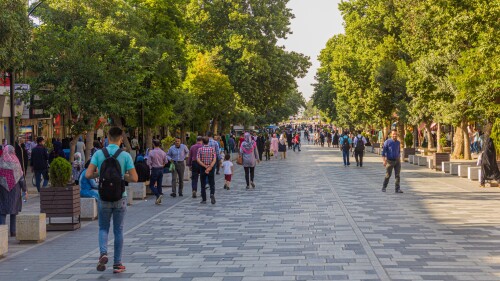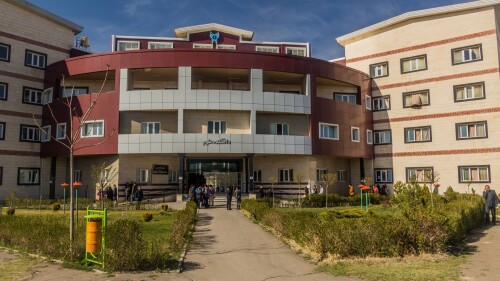Syrian President Bashar al-Assad’s ouster may have been a blow to the Islamic Republic of Iran, but Tehran has yet to give up seeking influence in Syria. For the past 14 years, Islamic Republic officials and media vilified the anti-Assad opposition as tools of the United States and Israel and takfiri terrorists. Since the regime’s fall, they pivoted to criticize Assad instead.
For years, Iranian state media has called groups such as Hay’at Tahrir al-Sham (HTS) “terrorists.” After the group’s initial successes last week, Iranian television moderated its language, referring to them instead more neutrally as “armed opposition” or “armed fighters.” When a state television chyron subsequently called HTS terrorists, likely because an engineer had not received the memo, even regime-affiliated websites joked that the state television’s “opinion changed again; HTS … becomes terrorist again!”
“Dialogue with the protesters was the business of the government of Syria, and our assistance was limited to the political [level].”
Politicians are doing the same. As recently as December 6, the Islamic Republic News Agency (IRNA), the official government news agency, posted an interview featuring Foreign Minister Abbas Araghchi, who was visiting Iraq. The post quoted Araghchi as saying, “Iran has always supported the government and people of Syria. According to what Damascus asks, we will continue this support.” Referring to the anti-Assad forces, he continued, “The [enemy] objective is coordination between the terrorists and Israel to turn Syria into a base for terrorism.”
Yet on December 9, Araghchi changed his tone. Hours after Assad’s regime fell, Araghchi essentially blamed Assad for not heeding his advice. “In my last meeting [with Assad], I gave a lot of advice, especially about the Syrian military. Second, [I urged him] to compromise more with the people because it’s the people who will preserve the government.” Araghchi then explained Iran’s lack of intervention in the Syrian regime’s final days. “Dialogue with the protesters was the business of the government of Syria, and our assistance was limited to the political [level]. … We were not supposed to become a replacement for the Syrian military against the protesters.”
Araghchi also criticized Assad for showing “little flexibility” toward the “legitimate opposition” during negotiations in Kazakhstan. He stated that Iran’s only purpose in Syria was to fight the Islamic State and that it withdrew its forces after that group’s defeat. “We didn’t intervene in [the dispute] between the government and the people of Syria and their opposition groups. … We always told them to enter dialogues.”
The issue is not Araghchi’s truthfulness. While he whitewashes direct Iranian involvement in Assad’s repression of the Syrian people, he is not the first Iranian foreign minister to lie. Rather, what is important is how the Iranian regime has changed its tone from talking about terrorists to acknowledging the grievances of the anti-Assad forces as legitimate. The reason is simple: The Iranian government is testing the water to see whether it can retain influence in Damascus.
If a future Syria remains committed to its enmity with Israel, Iran hopes Damascus might again turn to Iran.
Iran bears responsibility for 600,000 dead Syrians and a decade of destruction, and it is likely the second most hated country in Syria after Israel. The Jewish state, which has a territorial dispute with Syria, still tops the list. Iran also has ambitions to be an Islamic power, not just a Shi’ite power; it has made enormous gains on this front.
If a future Syria remains committed to its enmity with Israel, Iran hopes Damascus might again turn to Iran, especially since President Recep Tayyip Erdoğan’s regime in Turkey will not last forever, and Erdoğan sometimes radically changes his policies for short-term objectives. Such pragmatism toward former Sunni Islamist foes is not unprecedented in Tehran; after nearly going to war with the Taliban in Afghanistan in 1998, Iranian authorities sought a much more pragmatic relationship following the Islamist group’s reconquest of the country in 2021.
To make a boxing analogy, the Islamic Republic may have been knocked down by Assad’s fall, but it is not yet knocked out.







